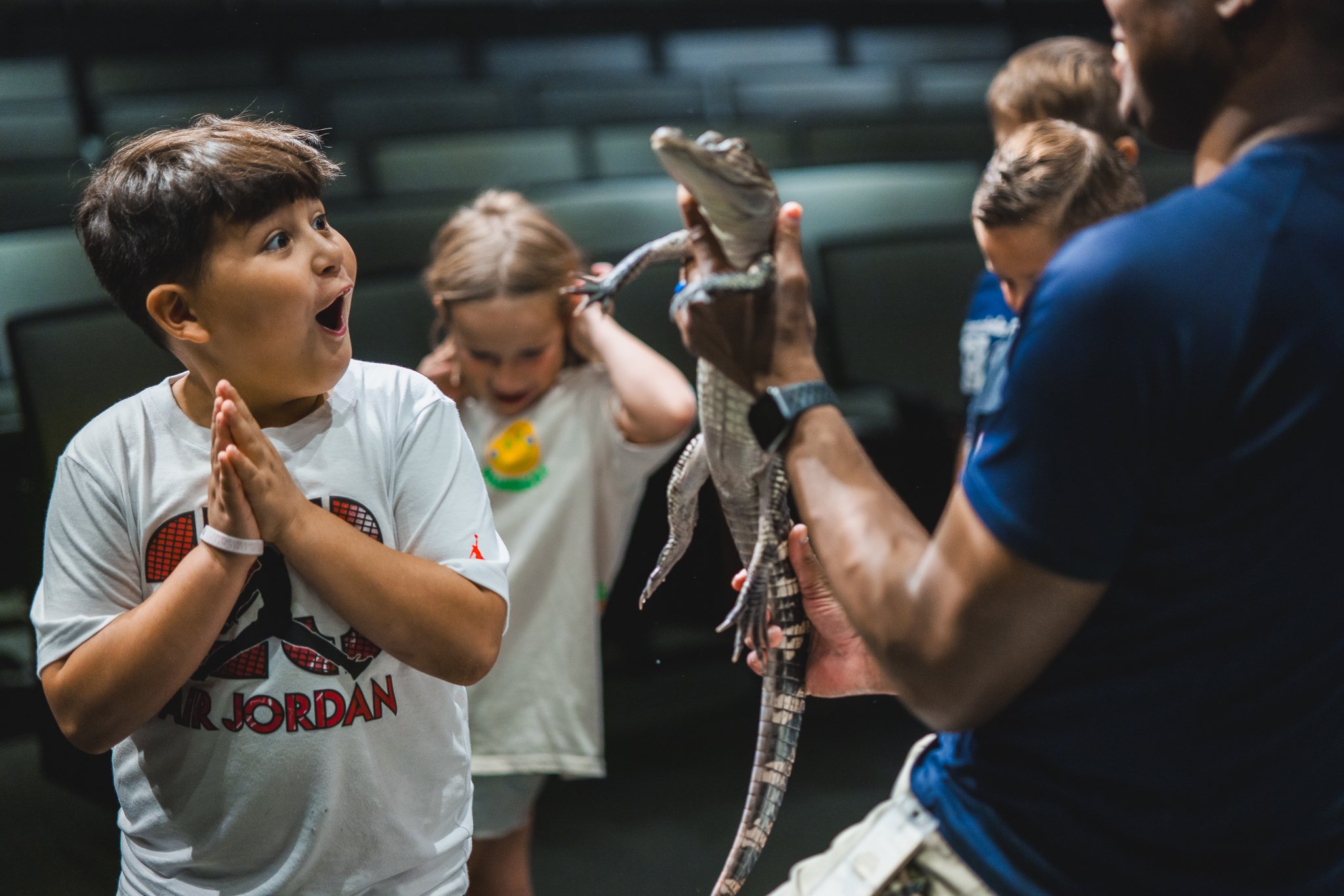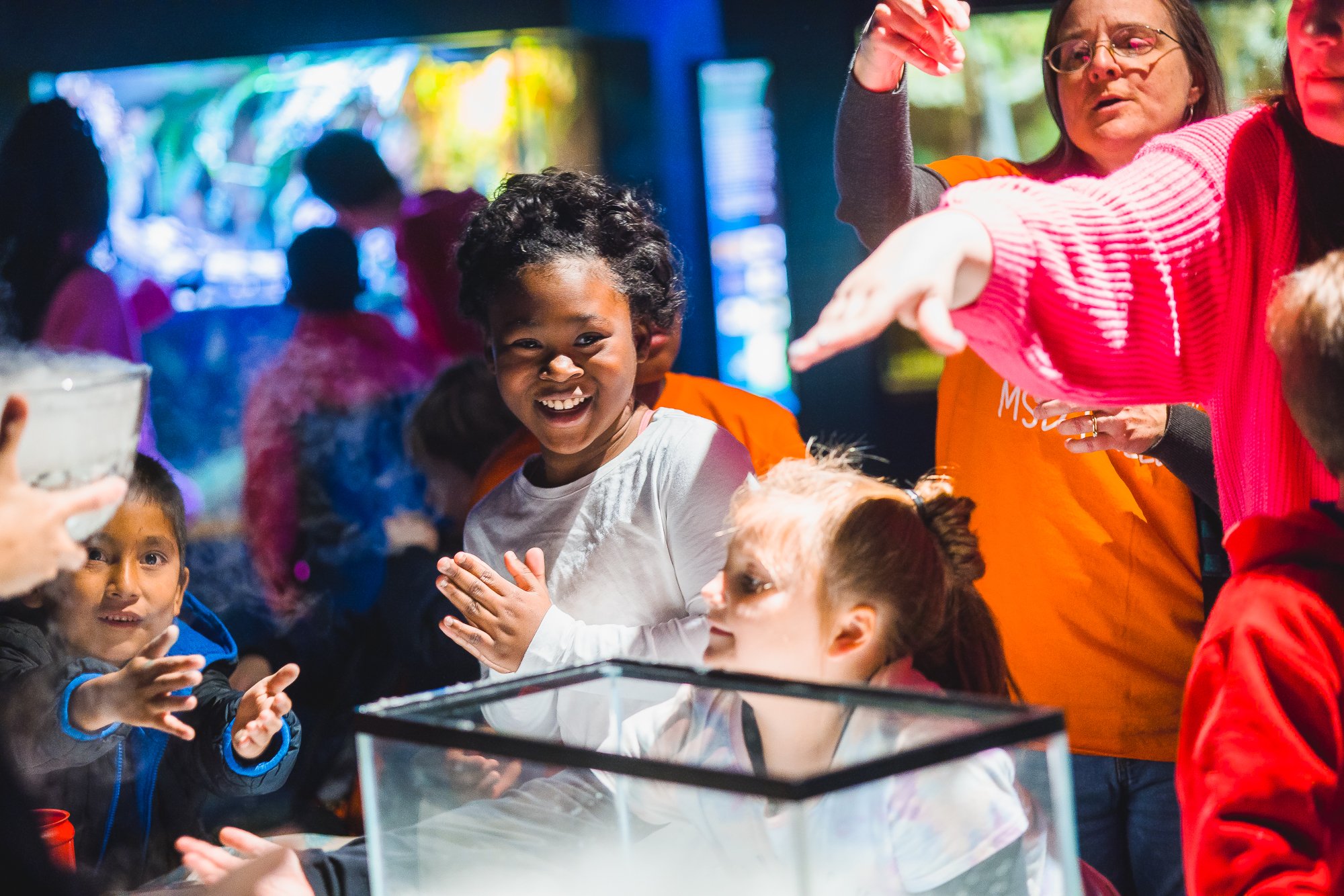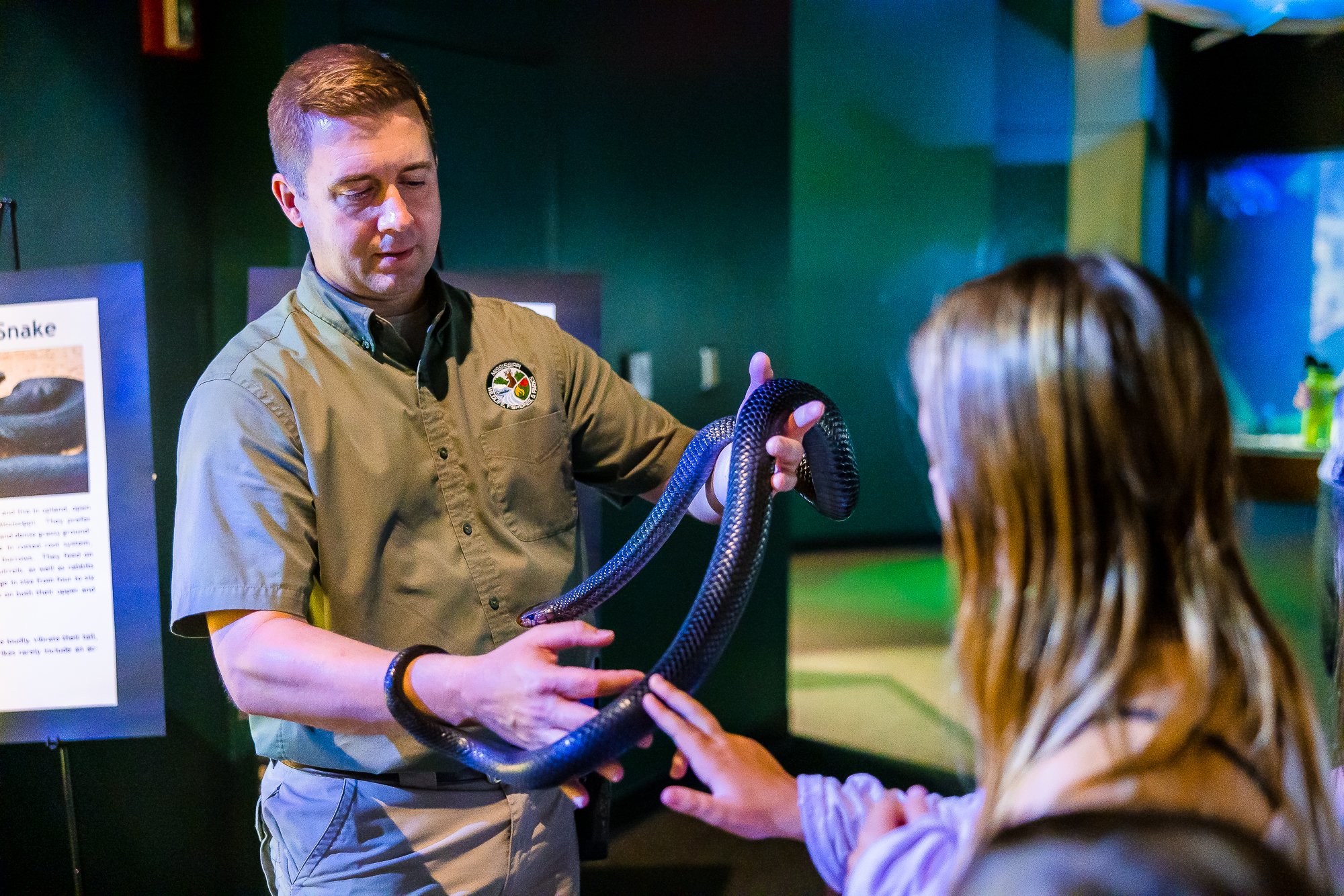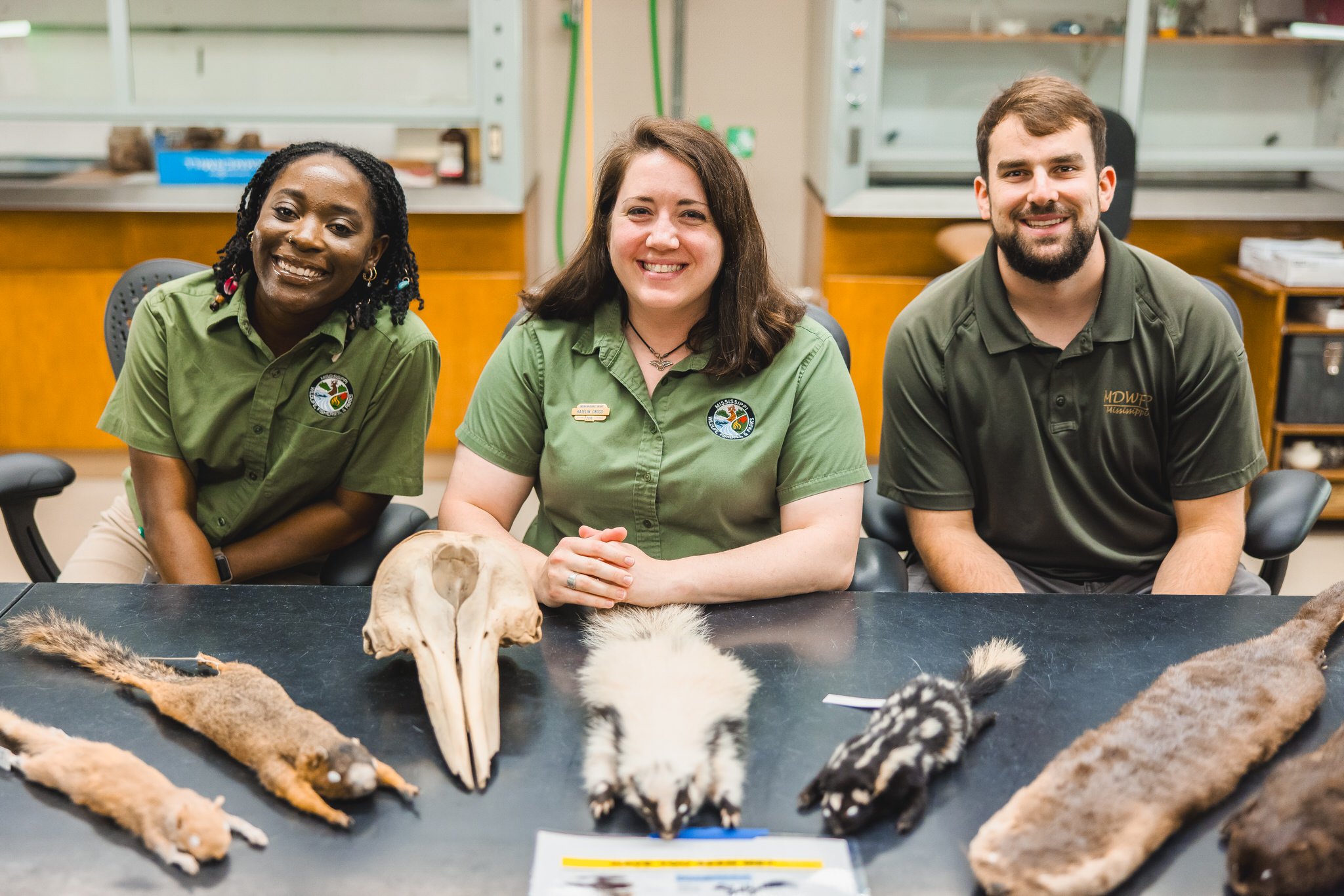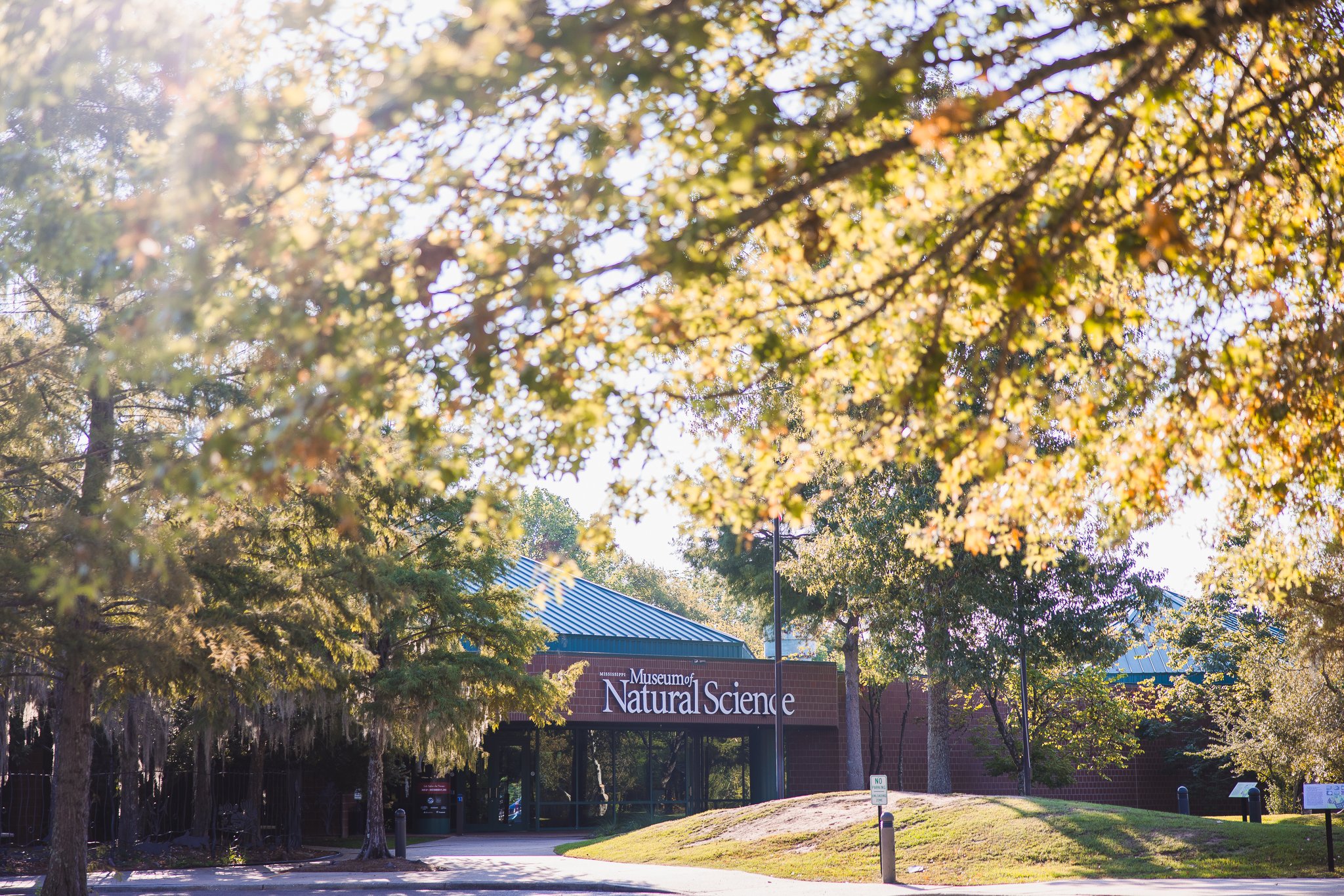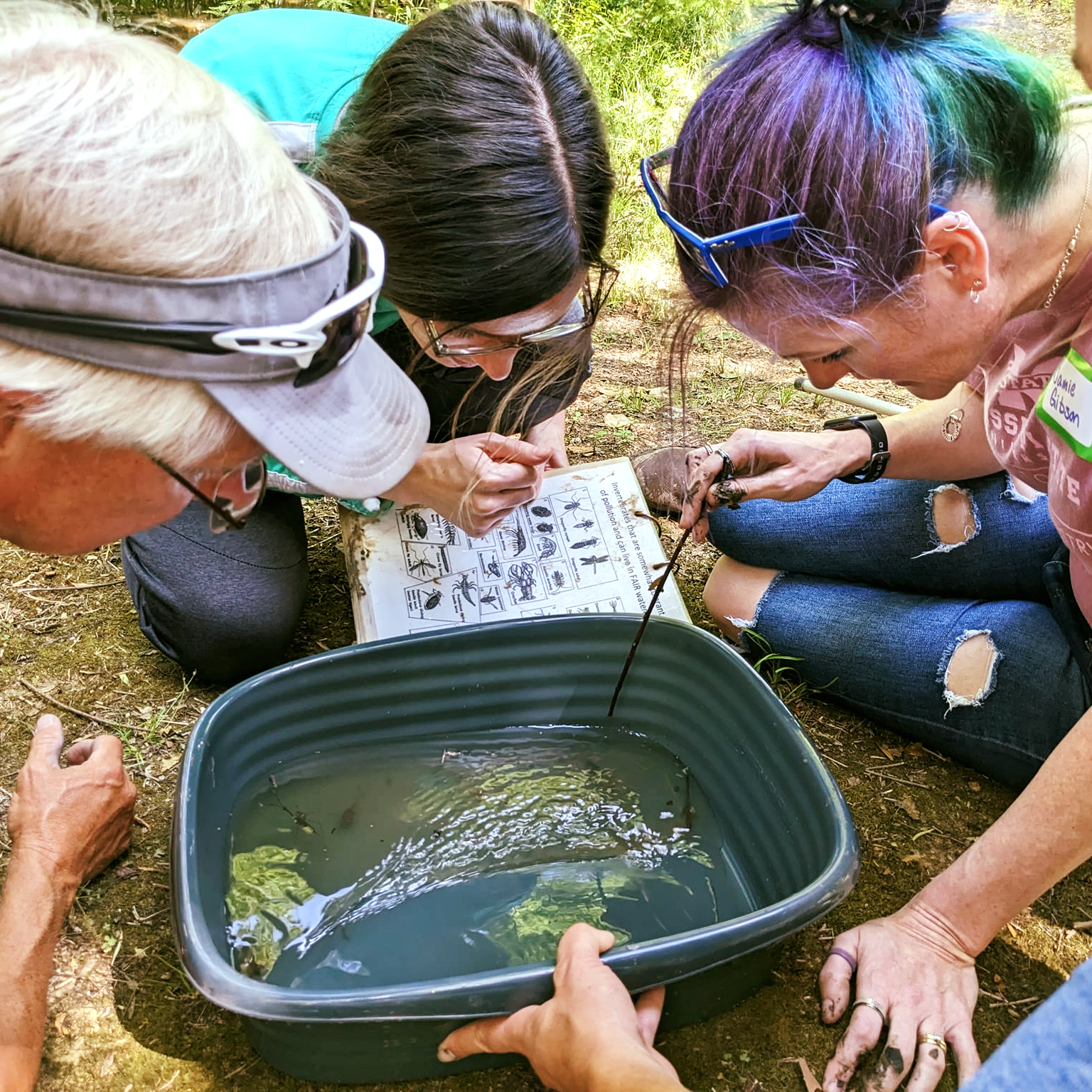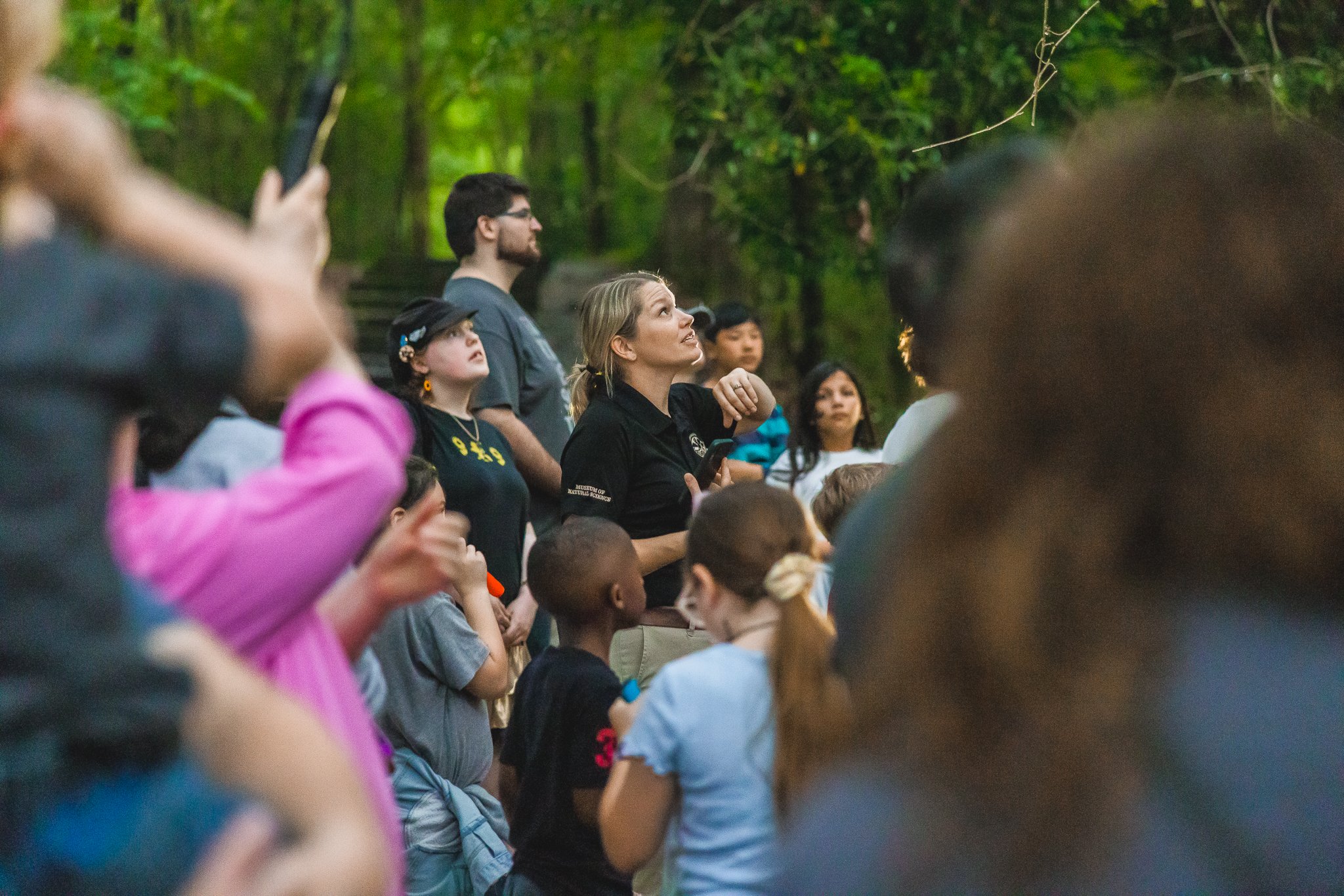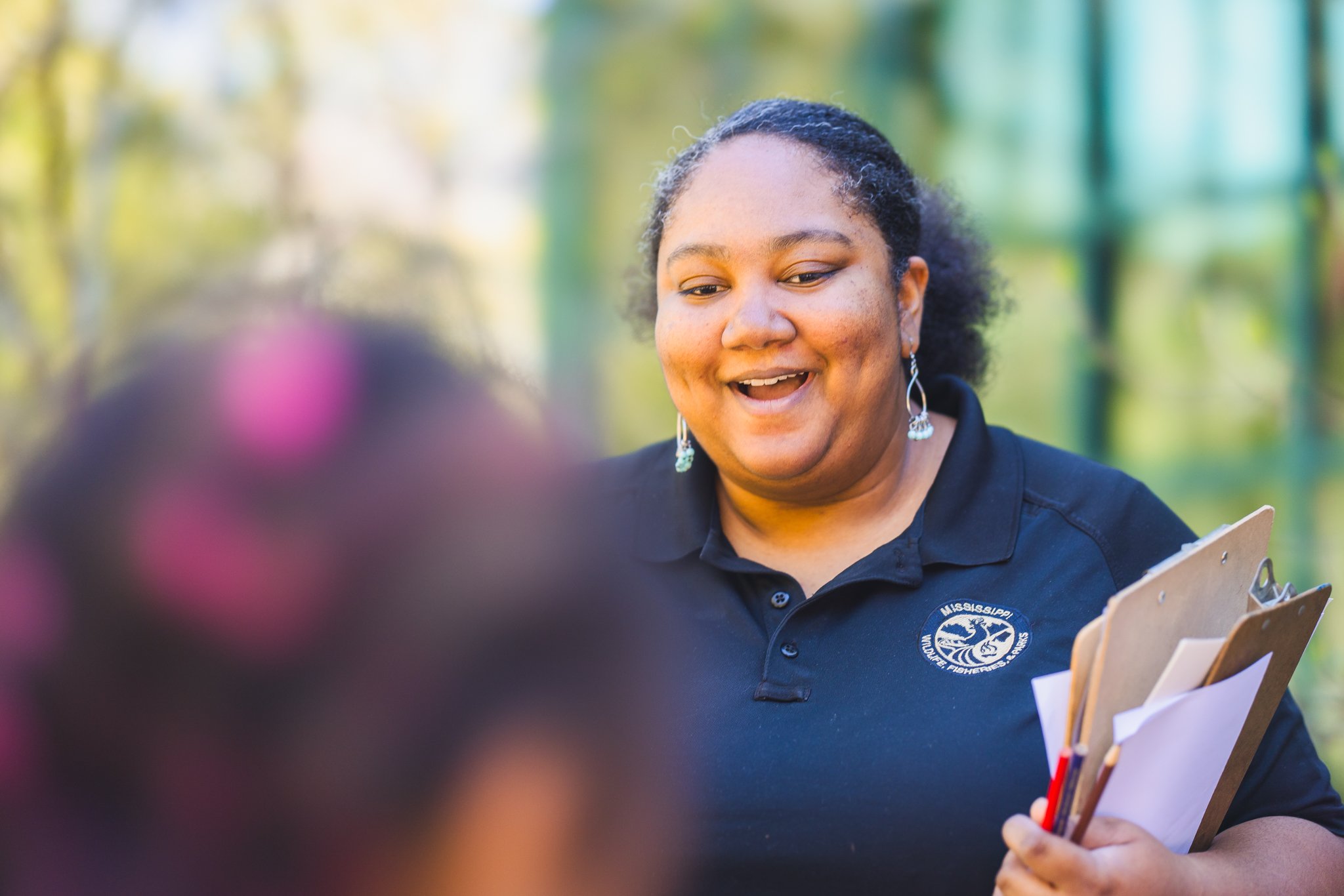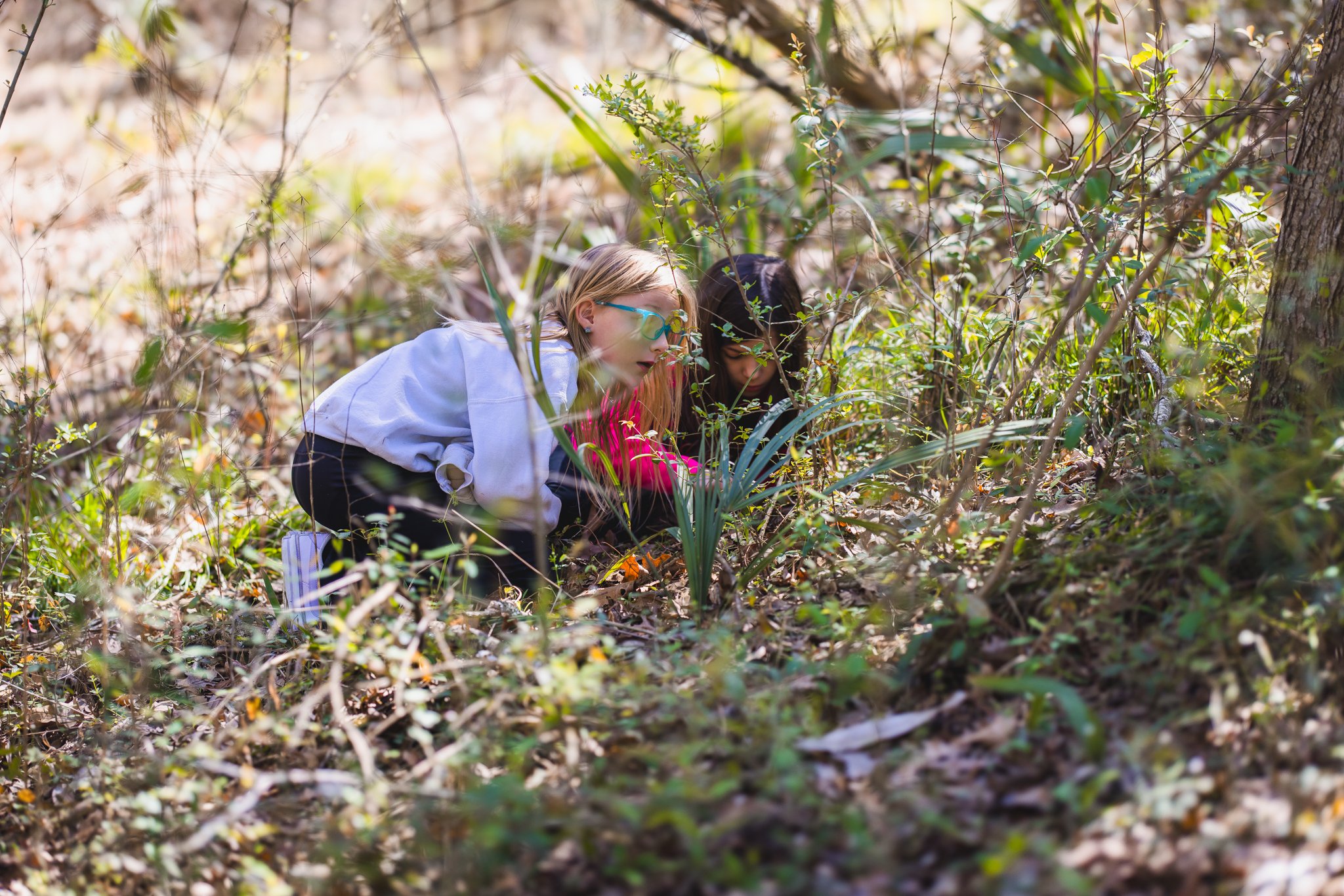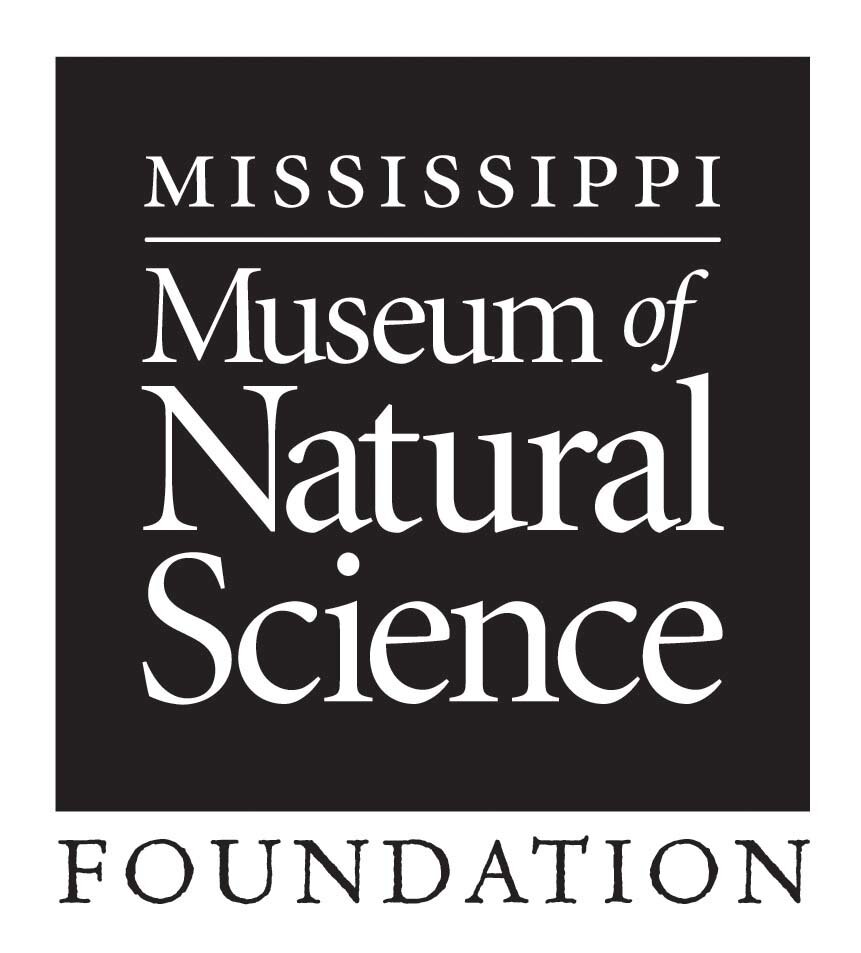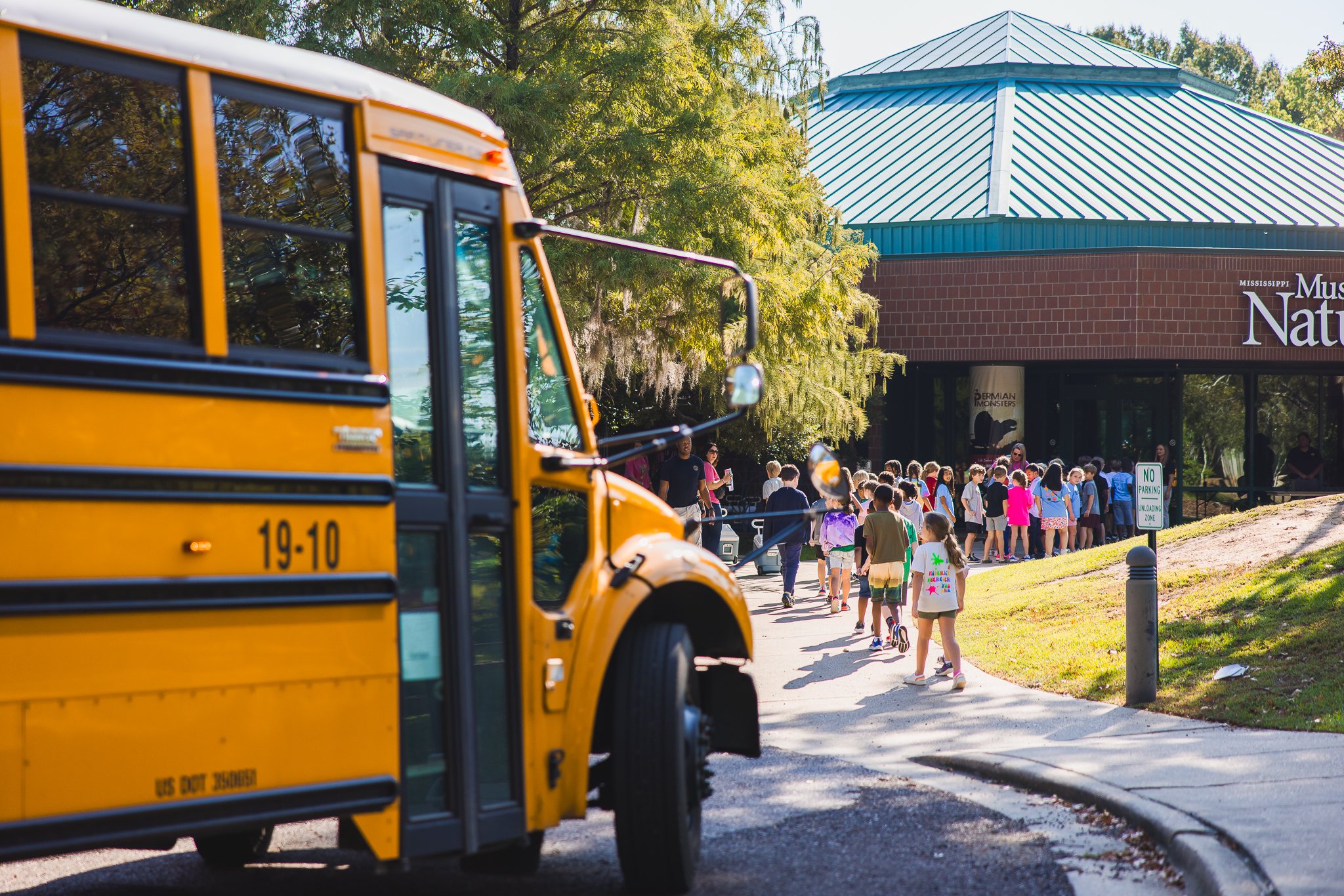ABOUT THE MUSEUM
DID YOU KNOW that MDWFP’s Mississippi Museum of Natural Science has been working to protect our natural resources since the 1930's and has established a distinguished national and international reputation?
IT’S A BIG JOB
The MMNS Foundation proudly supports MDWFP’s Mississippi Museum of Natural Science which:
attracts visitors worldwide, generating economic impact as part of Mississippi’s tourism product
and provides key education, recreation, and scientific services statewide.
Located in Jackson, Mississippi, in historic LeFleur’s Bluff State Park, the museum is:
a learning institution
an attraction with membership benefits, and
a research facility.
The museum’s primary users are:
the state’s school children
educational institutions
Mississippi residents, and
visitors from across the nation and the world.
You can make it possible for the museum to continue into the future and to expand its work by joining the Mississippi Museum of Natural Science Foundation and/or donating today.
Learn more about Fannye Cook, the Museum’s Founder, here and get her biography here.
Did you know our Members receive discounts on birthday party and other Museum facility rentals? Click here for details.
-
In operation since 1932, MDWFP’s Mississippi Museum of Natural Science:
Serves and strengthens the community.
Brings joy to families.
Inspires children to learn about natural resources and dream about their futures.
Assists teachers in bringing their classrooms to life. The museum’s education team works with visitors, students, and teachers through outreach programs and the museum itself as a living classroom.
Ensures the conservation and enhancement of Mississippi’s fish and wildlife resources so they survive and thrive for current and future generations. The museum’s research team documents, monitors, and conserves our state's native biodiversity and manages a vast collection of 1 million+ specimens accessed regularly by scientists around the world!
Is a safe storage environment for the museum's biological archives--a vast collection accessed regularly by scientists around the world!
-
The Museum's buildings and grounds feature a 91,500-square foot complex overlooking a 300-acre natural landscape, 2.5 miles of nature trails, and an open-air amphitheater.
Inside, there are over 200 living species in a 100,000 gallon aquarium network and 73,000 square feet of permanent and temporary exhibits.
An entire wall of fossil specimens, including Zygorhiza, Mosasaurus, and a giant sloth.
The Preschool Discovery Room features colorful murals and an iconic, giant treehouse with a slide.
A 100,000-gallon aquarium network housing over 200 living species
"The Swamp": a 1,700-square foot greenhouse
The Preschool Discovery Room, featuring colorful murals and an iconic treehouse with a slide
The Dinosaur Trail
The Dragonfly Gift Shop
The LeFleur's Bluff Playground
Classroom space and the 200-seat Rotwein Theater
